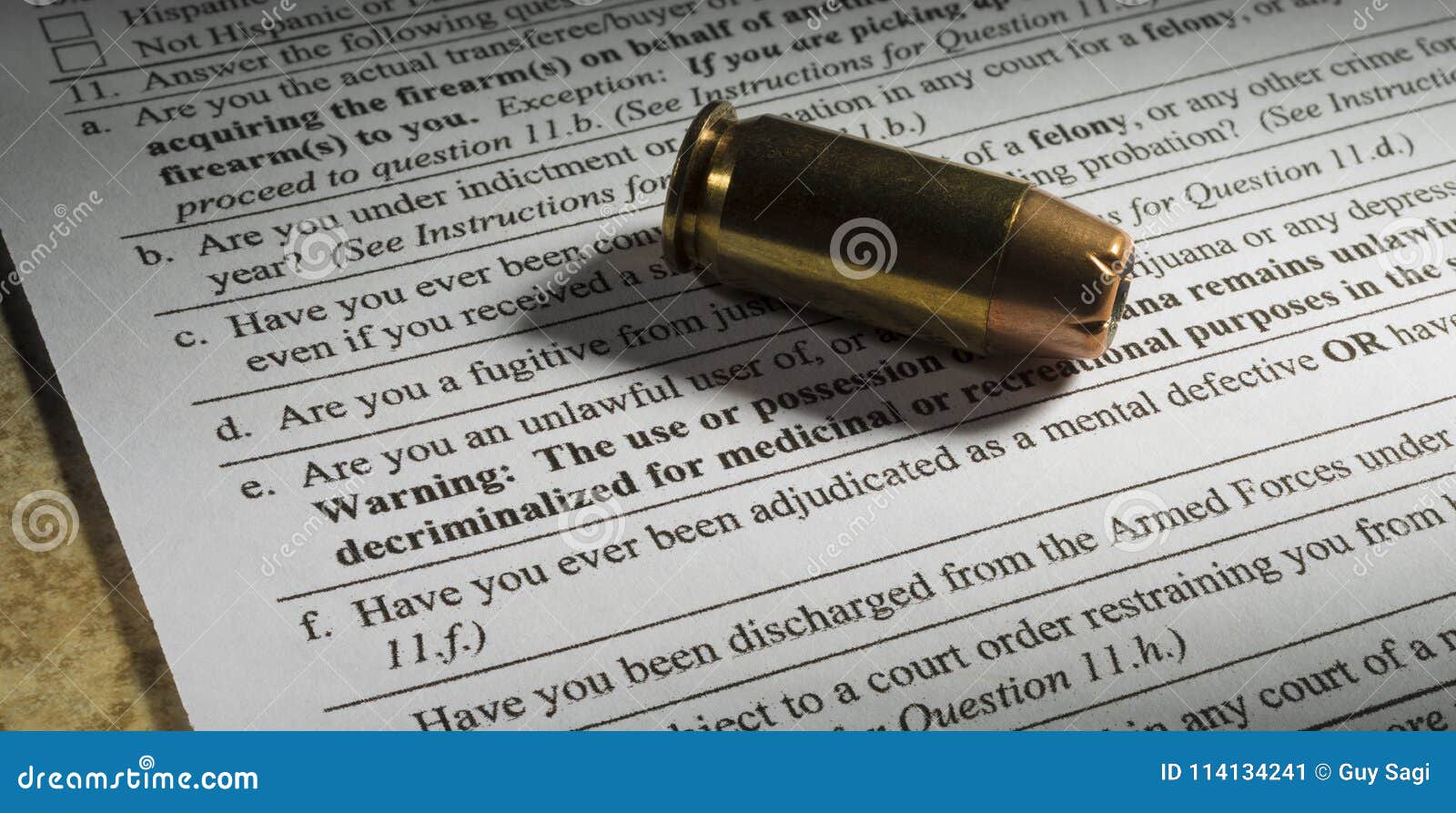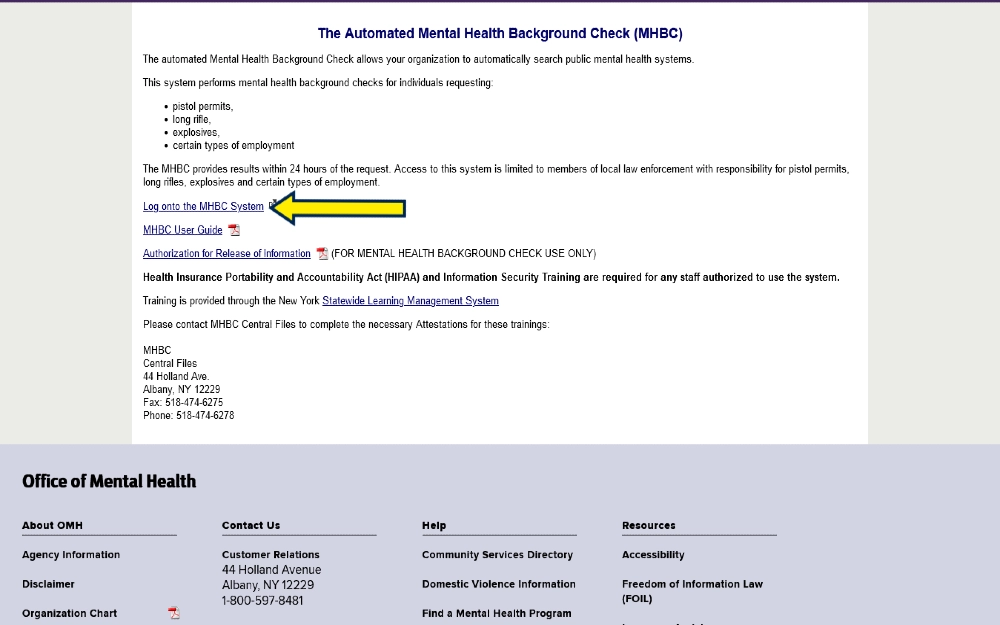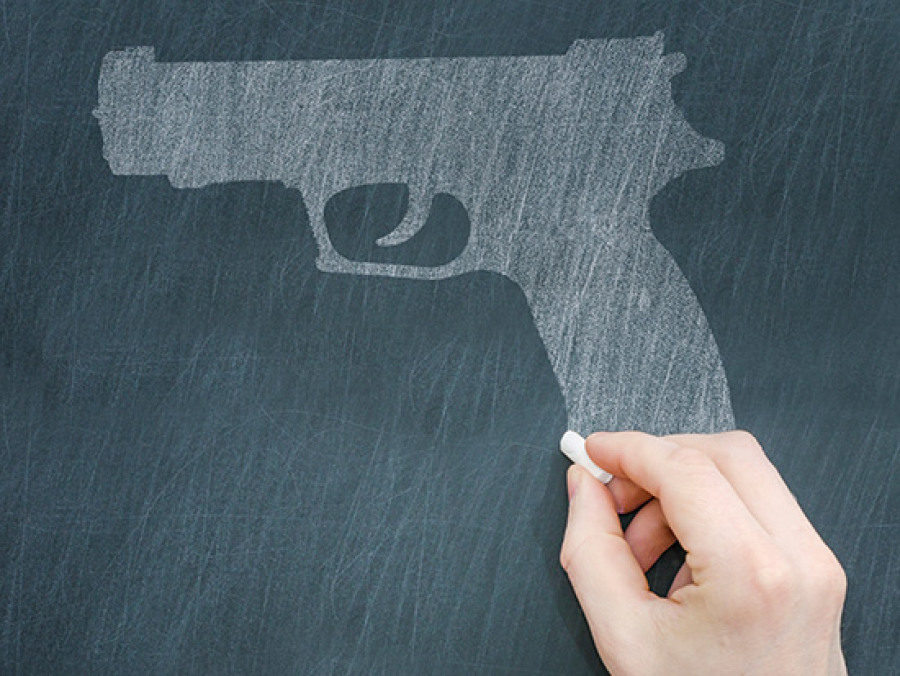Will My Mental Health Show on a Firearm Background Check?
Will my mental health show on firearm background check – Will my mental health show on a firearm background check? This question is at the forefront of many minds, especially given the complex interplay between mental health, gun ownership, and the legal framework surrounding firearm purchases. Understanding the current laws, the background check process, and the often-misunderstood relationship between mental illness and gun violence is crucial for responsible gun ownership and access to mental healthcare.
This exploration delves into the facts, addressing common misconceptions and providing resources for those seeking help or further information.
The process of a firearm background check involves a review of various databases, including the National Instant Criminal Background Check System (NICS). While NICS does consider certain mental health records, the specific criteria and the types of records flagged vary depending on state and federal laws. This variability contributes to the complexity and often raises concerns about privacy and fairness.
This article aims to clarify the legal landscape, the practicalities of the background check, and the importance of separating the often-confounded issues of mental illness and violent behavior.
Firearm Background Checks and Mental Health in the US
The intersection of mental health and firearm ownership in the United States is a complex and often contentious issue. Federal and state laws attempt to balance Second Amendment rights with public safety concerns, leading to a system with varying levels of regulation and significant privacy implications. This discussion will explore the current legal framework, the background check process, the relationship between mental illness and gun violence, available resources, and common misconceptions.
Current Legal Framework Governing Mental Health Information in Firearm Background Checks
Federal law prohibits individuals adjudicated as mentally defective or committed to a mental institution from possessing firearms. The National Instant Criminal Background Check System (NICS) uses this information, along with other disqualifying factors, to determine eligibility for firearm purchases. However, the definition of “adjudicated as mentally defective” and the reporting of such information varies significantly across states, leading to inconsistencies in the system.
Types of Mental Health Records Potentially Flagged in Background Checks
While the specific records vary by state, generally, records indicating a court-ordered commitment to a mental institution or a finding of mental defectiveness are most likely to be flagged. This often involves court orders, specific diagnoses documented in medical records, and information submitted by mental health professionals. The breadth of information included and the accuracy of reporting remain ongoing challenges.
Mental health is a huge issue globally, and the World Health Organization is working hard to address the gap in care. Check out the details of their impactful initiative, the world health organization’s mental health gap action program , to see how they’re tackling this challenge. It’s fascinating to see the differences in approach needed when considering the nuances of women’s mental health vs men’s mental health , as different societal pressures and biological factors play a significant role.
Understanding these disparities is crucial for effective intervention and support.
Privacy Concerns Surrounding the Use of Mental Health Records in Firearm Background Checks

The use of mental health records in background checks raises serious privacy concerns. The potential for stigmatization and discrimination against individuals with mental illness is significant. Furthermore, the accuracy and completeness of the data used are not always guaranteed, potentially leading to wrongful denials of firearm ownership. Balancing public safety with the protection of individual privacy rights remains a crucial challenge.
State Laws Regarding Mental Health and Firearm Ownership
State laws regarding mental health and firearm ownership vary considerably. Some states have stricter reporting requirements for mental health professionals, while others have more lenient criteria for disqualifying individuals. This inconsistency creates a patchwork system where an individual’s eligibility to own a firearm can depend significantly on their state of residence. The lack of uniformity presents challenges for both enforcement and consistent application of federal law.
The Firearm Background Check Process: Will My Mental Health Show On Firearm Background Check
The firearm background check process involves several steps, beginning with the purchaser completing a Bureau of Alcohol, Tobacco, Firearms and Explosives (ATF) Form 4473. This form collects personal information, including name, address, date of birth, and other identifying details. The information is then submitted electronically to NICS for a background check.
Role of the National Instant Criminal Background Check System (NICS)
NICS is the central database used to conduct background checks. It contains information from various sources, including state and local law enforcement agencies, the FBI’s National Crime Information Center (NCIC), and state mental health databases. NICS compares the information provided on Form 4473 against its records to identify any disqualifying factors.
NICS Eligibility Criteria for Firearm Purchases
NICS uses several criteria to determine eligibility, including felony convictions, domestic violence restraining orders, dishonorable discharges from the military, and the aforementioned mental health adjudications. If a disqualifying factor is found, the sale is delayed or denied. The process has specific timeframes for completing the check, and there are provisions for appeals if an individual believes their rights have been violated.
Firearm Background Check Flowchart
A simplified flowchart would show the following stages: 1. Purchaser completes Form 4473. 2. Form submitted to NICS. 3.
NICS conducts background check. 4. NICS returns either a “proceed,” “delay,” or “deny” response. 5. If “proceed,” the sale can be completed.
If “delay,” a further investigation is needed. If “deny,” the sale is prohibited. Potential rejection points occur at each stage, particularly during the NICS check, where any disqualifying factor could trigger a denial.
Mental Health and Gun Violence: A Complex Relationship
The relationship between mental illness and gun violence is complex and often misunderstood. While individuals with mental illness are more likely to be victims of violence than perpetrators, a correlation between severe mental illness and increased risk of violence does exist, though this risk is still relatively small compared to the general population. It’s crucial to avoid generalizations and recognize the diverse nature of both mental illness and violent behavior.
Statistical Relationship Between Mental Illness and Gun Violence
Studies have shown a correlation between certain severe mental illnesses and increased risk of violence, but this correlation is not causation. Many factors contribute to gun violence, and mental illness is only one piece of a much larger puzzle. Existing data often suffers from limitations, including underreporting of mental illness and inconsistent diagnostic criteria.
Prevalence of Mental Illness in the General Population vs. Gun Violence
While the prevalence of mental illness in the general population is substantial, the percentage of individuals with mental illness involved in gun violence is relatively small. Focusing solely on mental illness as the primary driver of gun violence ignores other crucial factors, such as access to firearms, societal factors, and the impact of trauma and abuse.
Factors Contributing to Gun Violence
Gun violence is a multifaceted problem influenced by various factors, including easy access to firearms, societal inequalities, poverty, domestic violence, substance abuse, and gang activity. Mental illness is one factor among many, and focusing solely on it risks neglecting other significant contributors.
Societal Stigma Surrounding Mental Illness and its Impact
The pervasive stigma surrounding mental illness significantly impacts access to care and responsible gun ownership. Fear of judgment and discrimination often prevents individuals from seeking help, leading to untreated mental health conditions. Addressing this stigma is essential for improving mental healthcare access and promoting responsible firearm practices.
Resources and Support for Mental Health
Numerous resources are available for individuals struggling with mental health issues. These resources range from national organizations offering support and information to local community-based programs providing direct services. Seeking professional help is crucial for addressing mental health challenges effectively.
National and Local Mental Health Resources
- The Substance Abuse and Mental Health Services Administration (SAMHSA): Offers a national helpline and numerous online resources.
- National Alliance on Mental Illness (NAMI): Provides support groups, education, and advocacy.
- MentalHealth.gov: A government website with information on mental health conditions, treatment options, and resources.
Local resources, such as community mental health centers and private practices, also offer a range of services, tailored to specific needs and geographic locations.
Mental Health Treatment Options
Treatment options include therapy (psychotherapy), medication (psychotropic medications), and support groups. The best approach often involves a combination of these methods, personalized to the individual’s needs and diagnosis.
Seeking Help for Mental Health Challenges
Individuals can take proactive steps by contacting their healthcare provider, seeking referrals to mental health professionals, or using online resources to find local support groups. For those concerned about a loved one, open communication, encouragement to seek help, and support during treatment are vital.
Promoting Responsible Gun Ownership Alongside Mental Healthcare, Will my mental health show on firearm background check
Responsible gun ownership practices, such as secure storage, firearm safety training, and awareness of legal restrictions, can coexist with access to quality mental healthcare. Promoting both responsible gun ownership and mental health support are not mutually exclusive and are crucial for public safety.
Addressing Misconceptions about Mental Health and Firearms

Several misconceptions surrounding mental illness and gun violence need to be addressed. These misconceptions often fuel harmful stereotypes and hinder effective policymaking and public understanding.
Common Misconceptions About Mental Illness and Gun Violence
One common misconception is that most gun violence is committed by individuals with mental illness. This is inaccurate. Another misconception is that all individuals with mental illness are inherently violent. This is also false. Mental illness is a diverse category, and the vast majority of individuals with mental health conditions are not violent.
Refuting Inaccurate Claims

Claims that stricter mental health reporting requirements would significantly reduce gun violence are often overstated. While such measures might play a small role, they are unlikely to be a panacea. Equally inaccurate are claims that all individuals with mental illness should be prohibited from owning firearms; this is a sweeping generalization that ignores the diversity of mental health conditions and the rights of responsible individuals.
Mental health is a huge issue globally, and the World Health Organization is working hard to address the gap in care. Check out the details of their fantastic initiative, the world health organization’s mental health gap action program , to see how they’re tackling this challenge. It’s crucial to remember that mental health disparities exist, even between genders.
For example, understanding the differences highlighted in this comparison of women’s mental health vs men’s mental health is vital for creating more effective and inclusive support systems.
Facts Related to Mental Health and Responsible Gun Ownership
The facts highlight a complex relationship, where mental illness is one factor among many contributing to gun violence. Responsible gun ownership practices, alongside readily available mental healthcare, are essential components of a comprehensive approach to public safety. The focus should be on responsible access to both firearms and mental healthcare, not on broad generalizations or stigmatization.
Ultimately, the question of whether mental health information will appear on a firearm background check depends on a multitude of factors, including state laws, the specific nature of the mental health record, and the interpretation of those records within the NICS system. It’s crucial to remember that mental illness is not synonymous with violence, and responsible gun ownership should be promoted alongside improved access to comprehensive mental healthcare.
This article aims to foster a more informed understanding of this sensitive topic, encouraging open dialogue and responsible action.
Share this content:
